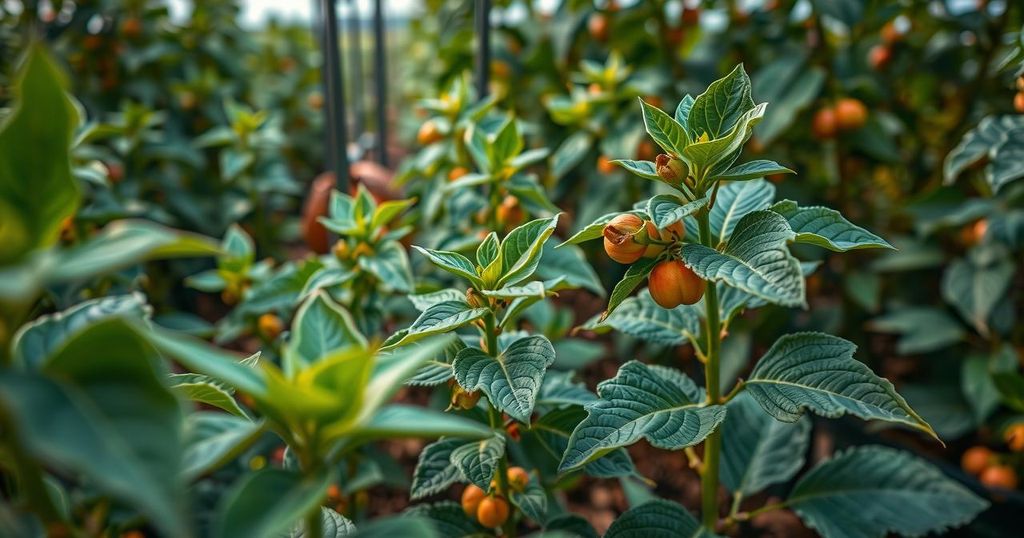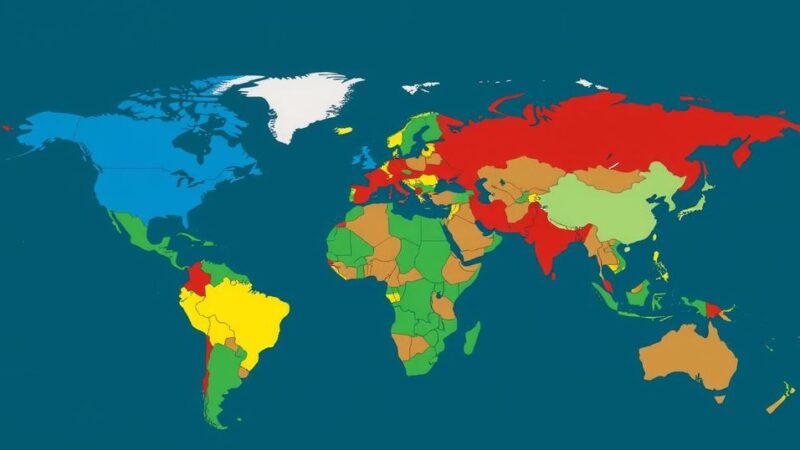A new study by CABI highlights the importance of strengthening South Sudan’s plant health system to combat crop losses from climate change-induced pests like the fall armyworm. The study reveals that these pests pose a significant threat to food security for the majority of rural households. Limited access to plant health services exacerbates the situation, as farmers rely heavily on NGOs for support. The study urges comprehensive improvements in plant health management to enhance agricultural productivity and safeguard livelihoods.
A recent publication by the Centre for Agriculture and Bioscience International (CABI) highlights the critical need for strengthening the plant health system in South Sudan to mitigate crop losses attributed to climate change-induced invasive pests. The study outlines how global climate change has facilitated the emergence of new pests and diseases that devastate various crops in the region, including elegant grasshoppers, bollworms, and the fall armyworm (FAW), which was documented in a 2017 FAO report. This invasive pest poses a significant risk to staple crops, such as maize and sorghum, thereby threatening the livelihoods of the predominantly agricultural rural population in South Sudan. The research indicates that approximately 86% of the rural populace relies on agriculture, and recent climate-related challenges have led to increasing incidents of crop damage. Notably, a 2023 UNEP report points out the frequent occurrence of extreme climatic events as a major contributing factor to plant health issues. Despite recognizing the urgency of these threats, a situational analysis of 960 farmers conducted in several regions, including Juba and Yambio, revealed limited access to essential plant health services, underscoring the reliance on NGOs and international agencies to fill this void. In addition to the FAW, other significant plant diseases such as the cassava mosaic virus and late blight plague crops, potentially leading to vast yield losses. CABI estimates that emerging pests like the papaya mealybug could decimate up to 91% of papaya yields, severely impacting smallholder farmers. Economic impacts from diseases such as cassava brown streak disease have been calculated to potentially cause losses up to $100 million annually in East and Central Africa. Acknowledging these challenges, the study advocates for improved institutional and regulatory frameworks within South Sudan’s Plant Health System (PHS). The evolution from traditional methods to contemporary practices, including integrated pest management and diagnostic technologies, underscores the need for comprehensive strategies to enhance agricultural productivity and sustainability. Priority should be given to farmer education, increased surveillance, and the provision of quality planting materials to fortify the agricultural sector against future climate-related adversities.
The subject matter of the article revolves around the agricultural challenges faced by South Sudan, particularly in the context of climate change and the subsequent rise of invasive pests. Agricultural practices in this region are significantly affected by climate-induced phenomena, resulting in the emergence of pests that threaten food security and rural livelihoods. With the majority of rural households reliant on agriculture, addressing pest and disease management through a stronger plant health system is imperative to safeguarding their livelihoods.
In conclusion, the study conducted by CABI emphasizes the urgent need for a robust plant health system in South Sudan to combat the adverse effects of invasive pests and diseases exacerbated by climate change. By enhancing the accessibility of plant health services and improving farmers’ education on integrated pest management, it is possible to mitigate crop losses and sustain agricultural productivity. Implementing strategic reforms will be vital in protecting the livelihoods of millions dependent on agriculture in the region.
Original Source: farmersreviewafrica.com






